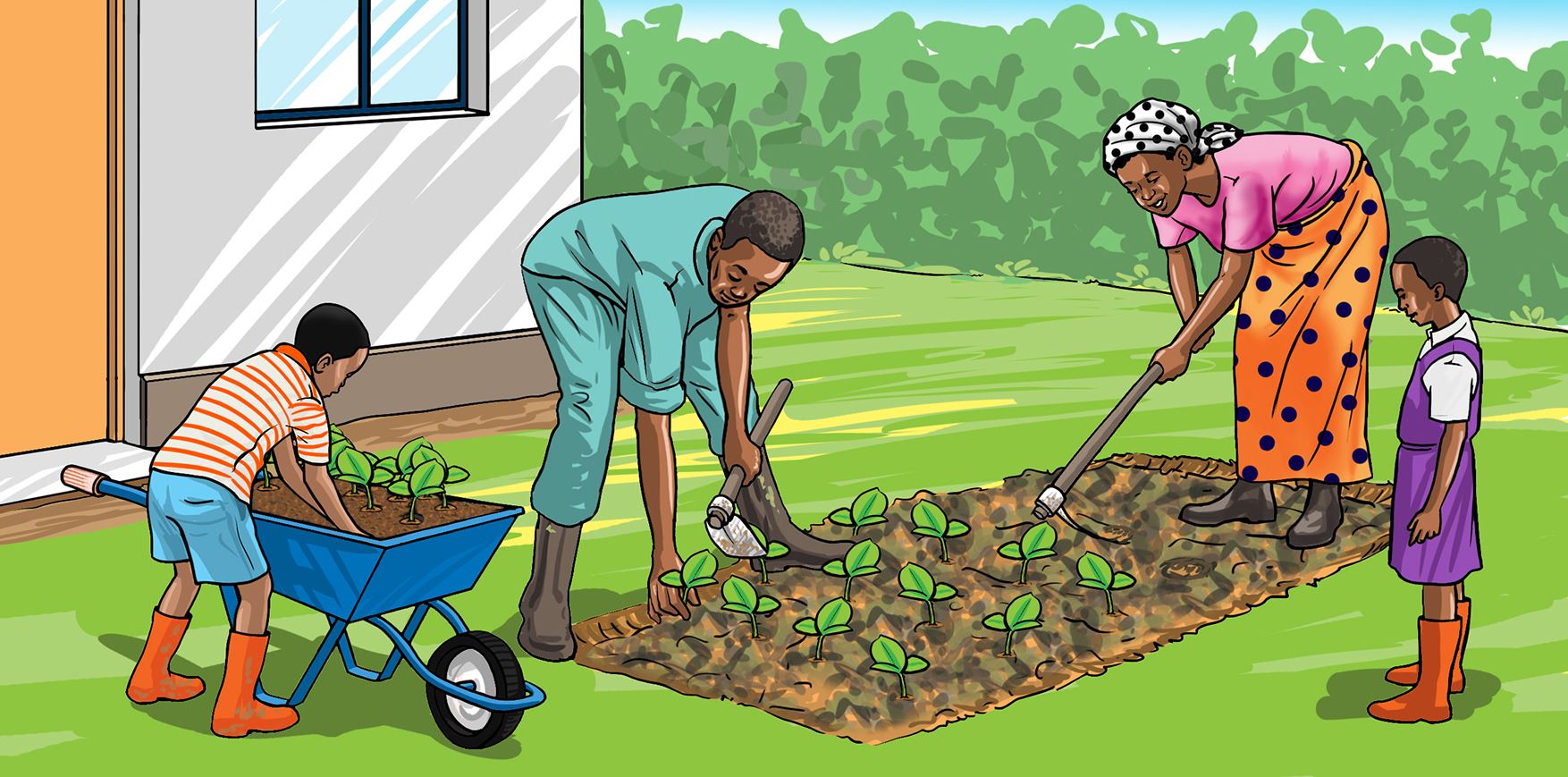We learned that soil is important in the environment. It is used to grow crops.We need to take care of the soil to conserve the environment. Soil should be improved to increase production.
Identifying sites with poor soils for crop growth
When soil erosion takes place, it leaves behind poor soils which cannot support healthy crop growth.
Activity 1
Identifying sites with poor soil for crop growth in the school and community.
Let us Find Out
Working in Groups
- Walk around the school compound and observe the soils found in:
- The school garden and flower gardens.
- The playgrounds and assembly ground.
- Around the waste dump sites.
- Are there areas which have:
- Eroded soil?
- Deposited soil?
- No plants growing on the soil?
- Healthy plants growing on the soil?
- Make a list of all the areas you identified with poor soil in the school compound.
Let us understand
- Areas with eroded soils in the gardens have unhealthy plants growing.
- Eroded areas have poor soils for crop growth.
Construction of an organic waste pit
An organic waste pit is a structure used for putting plants and crop remains, food remains and kitchen waste. Accumulated waste is used to improve soils with poor crop growth. It is different from a compost pit.
Organic waste pit can be dug in the ground or constructed above the ground.
Activity 2
Constructing an organic waste pit in the school.
Let us practice
Work in groups
- Identify best location in the school to put up a waste pit.
- Discuss how big and deep the waste pit should be.
- Construct an organic waste pit in the school compound.
Look at the pictures below:
A.
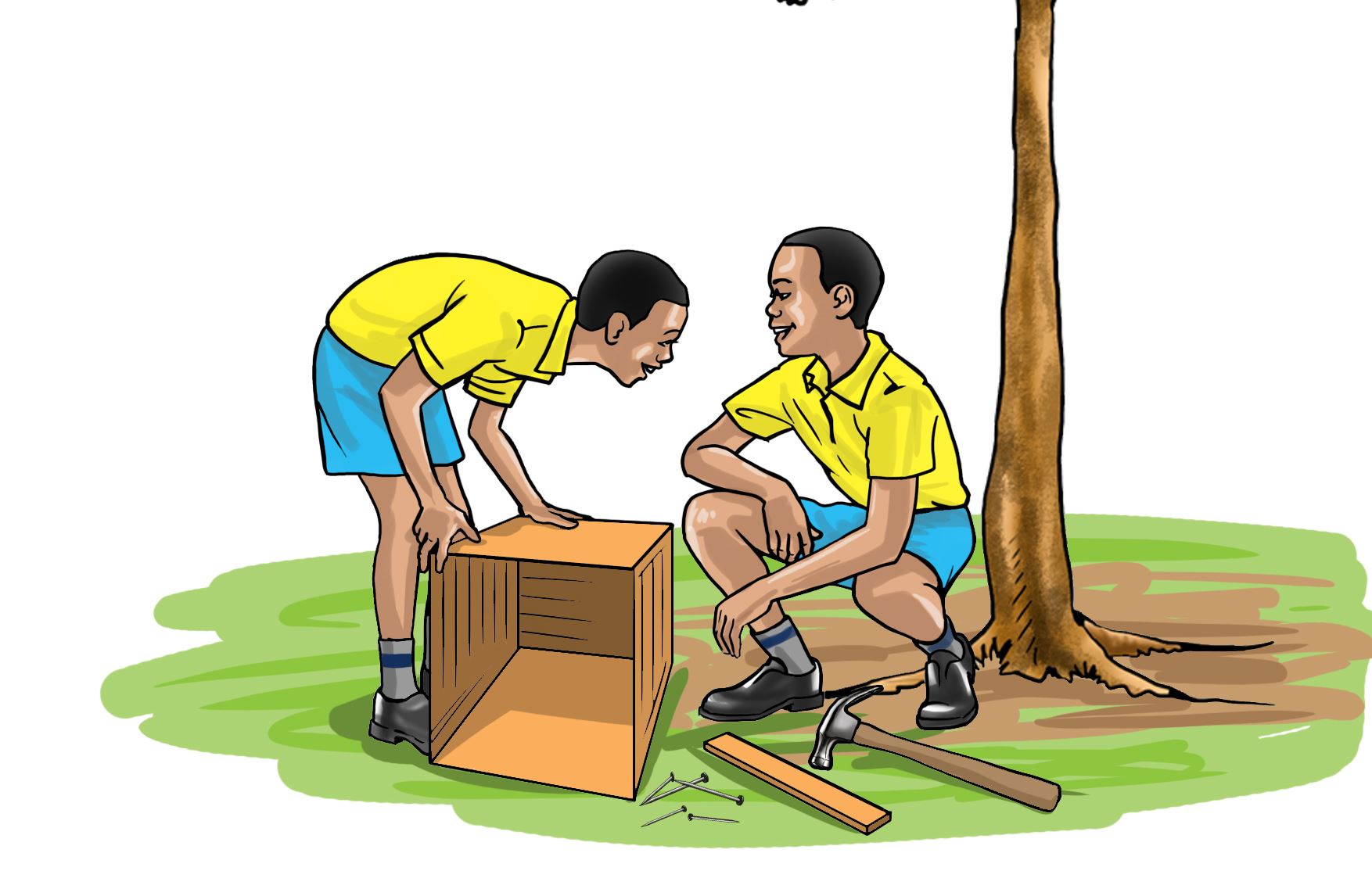
B.
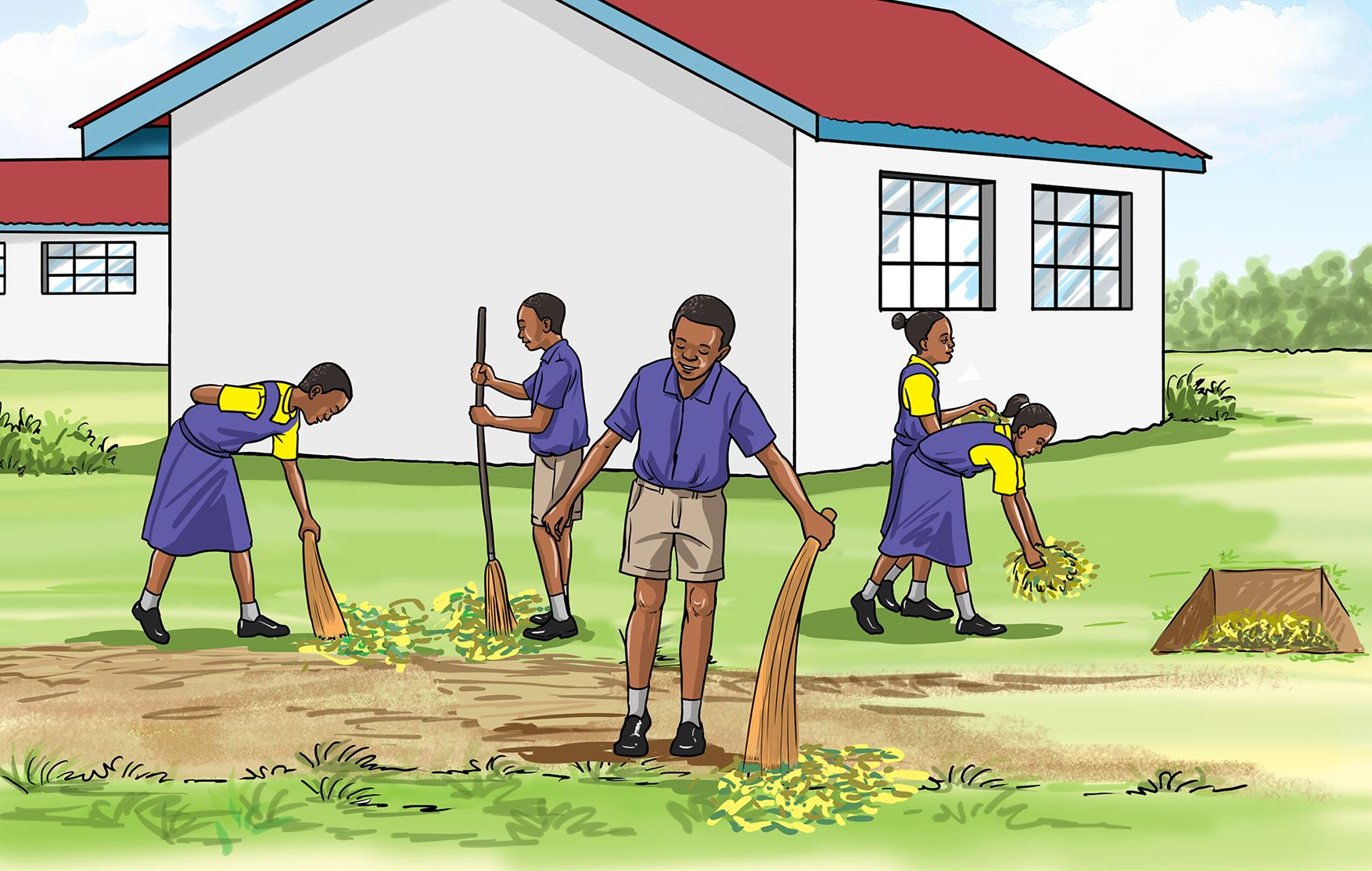
C.
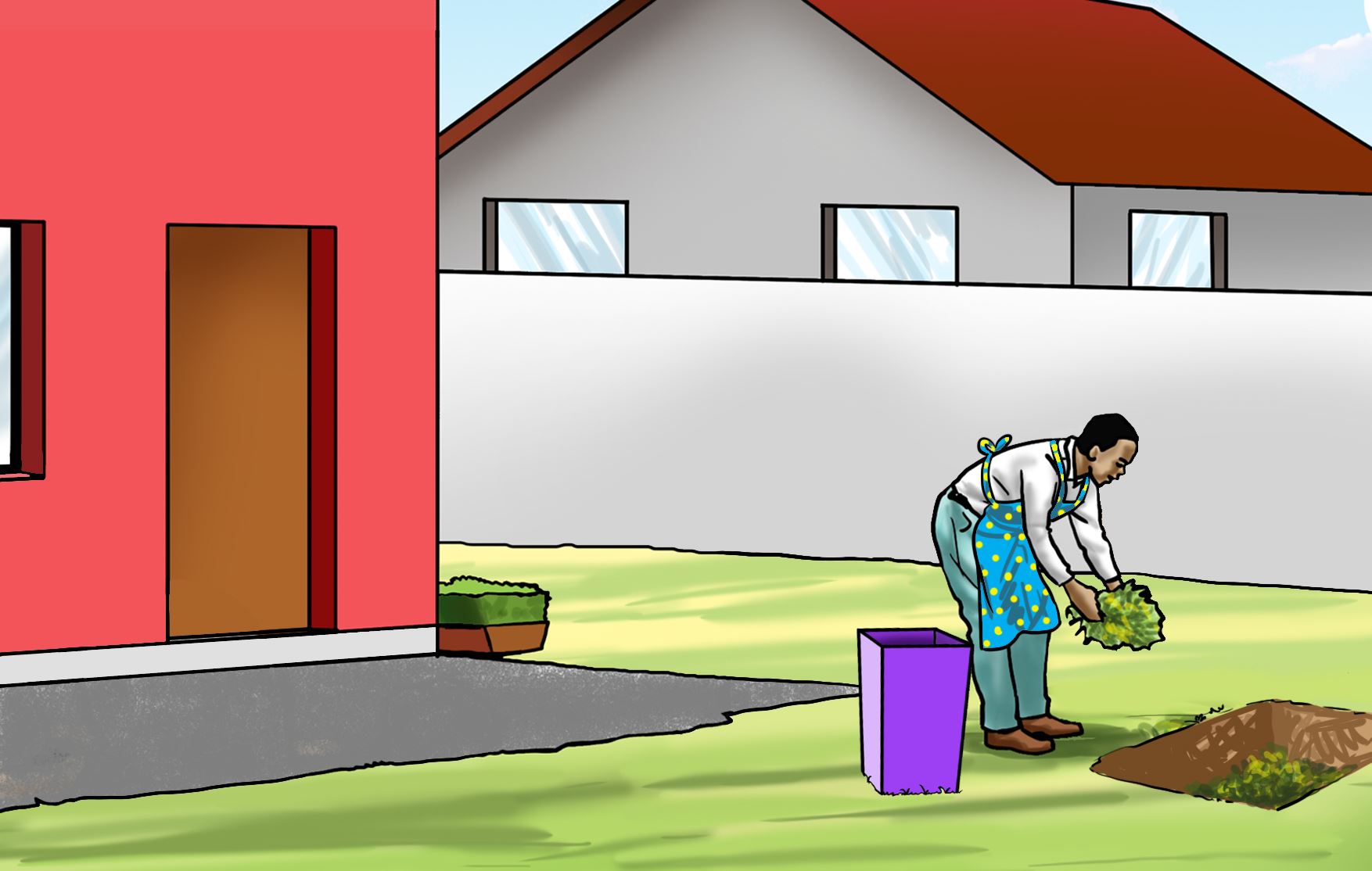
D.
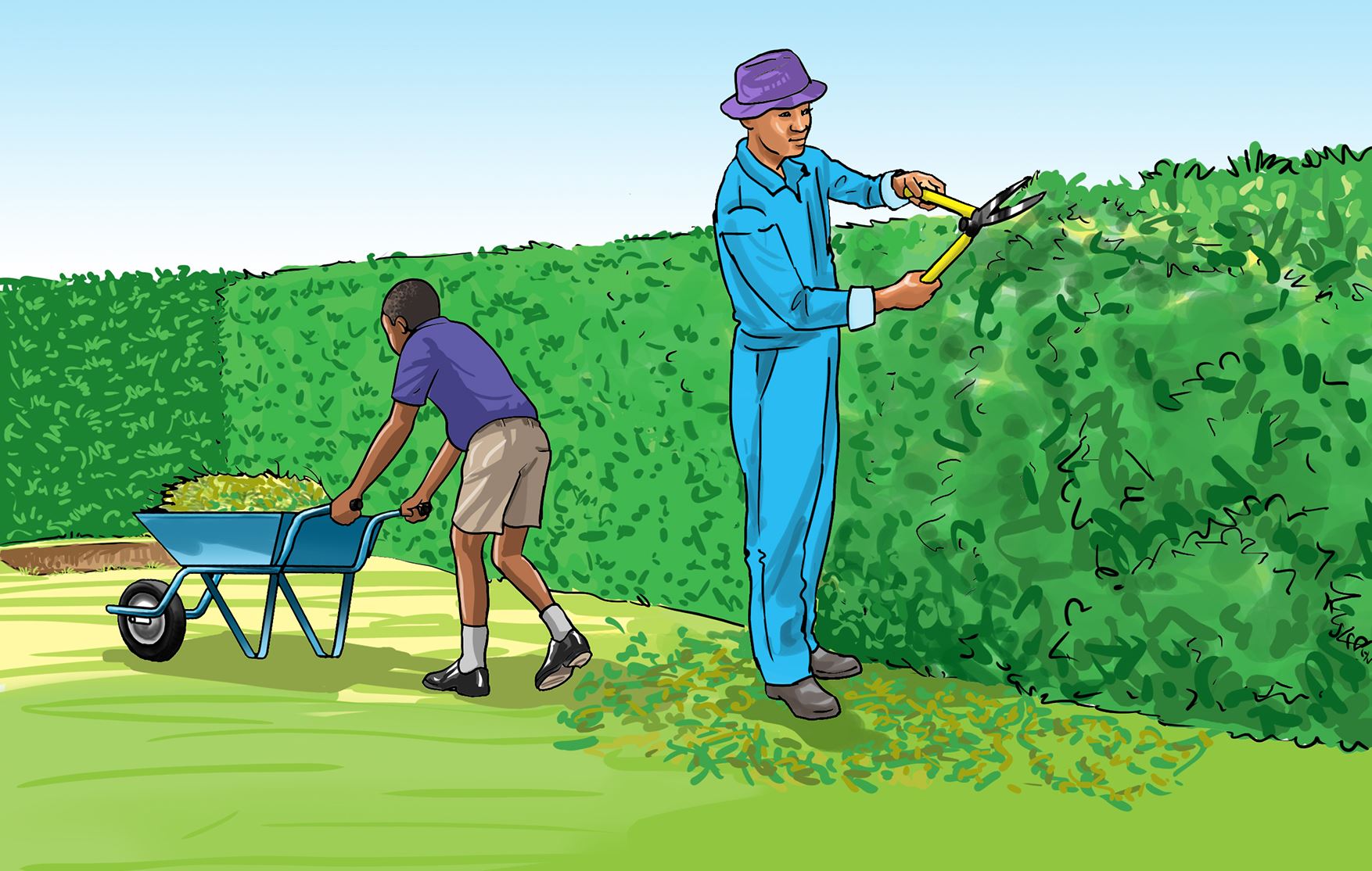
- Pile the organic materials in the pit everyday.
- Cover the material with a layer of soil.
- Share your experiences in the class.
Let us understand
- The sides of organic waste pit can be built with wood or stones.
- Materials put into the waste pit are: food remains, kitchen waste, cut grass, hedge prunings and sweepings from animal houses and from school compound.
Using accumulated organic remains for soil improvement
How can we improve the soil using organic wastes?
Activity 3
Planting crops in accumulated organic wastes to observe soil improvement.
Let us practice
Follow the steps in the following pictures to plant cabbages in the accumulated organic waste pit.
A.
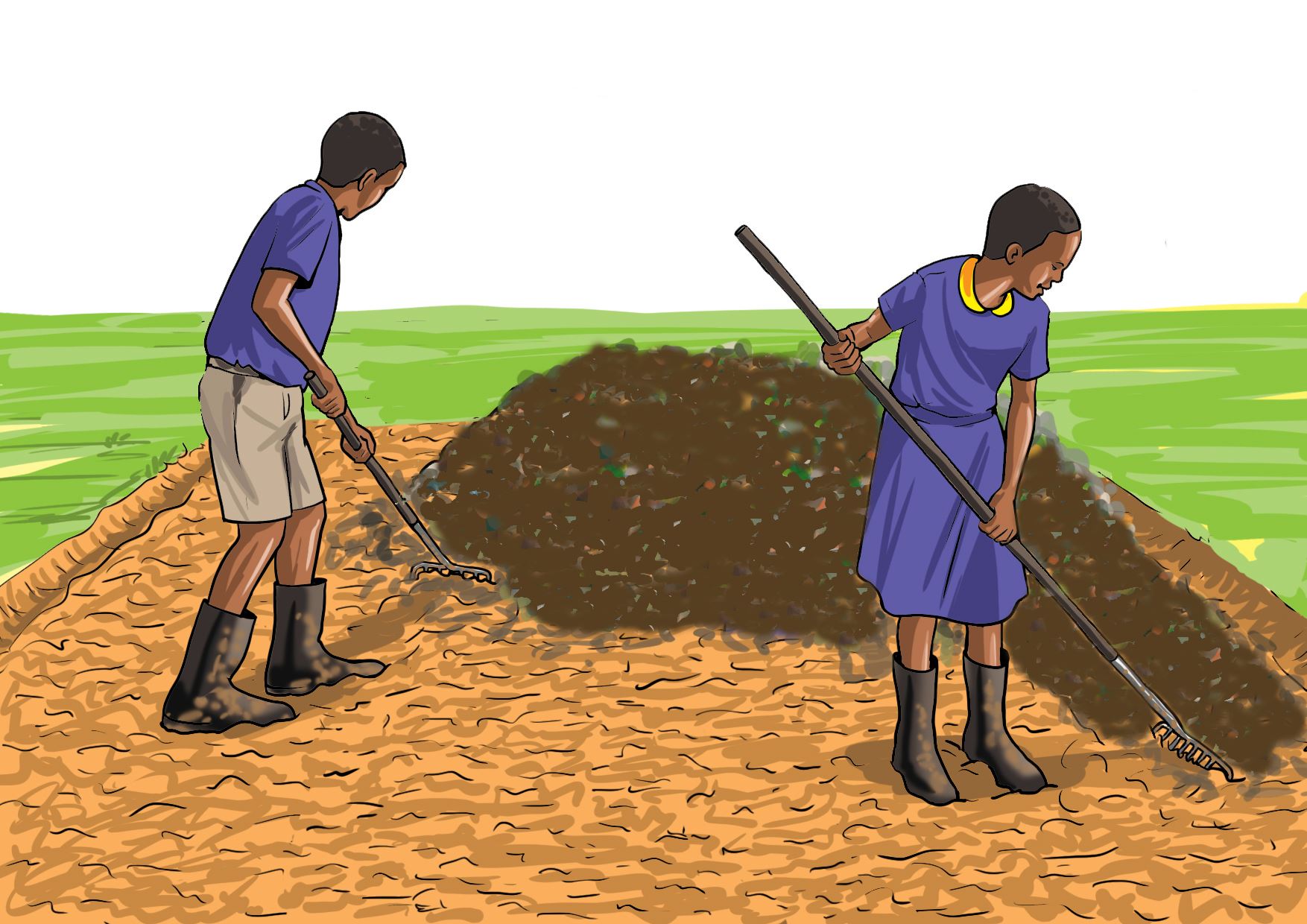
B.
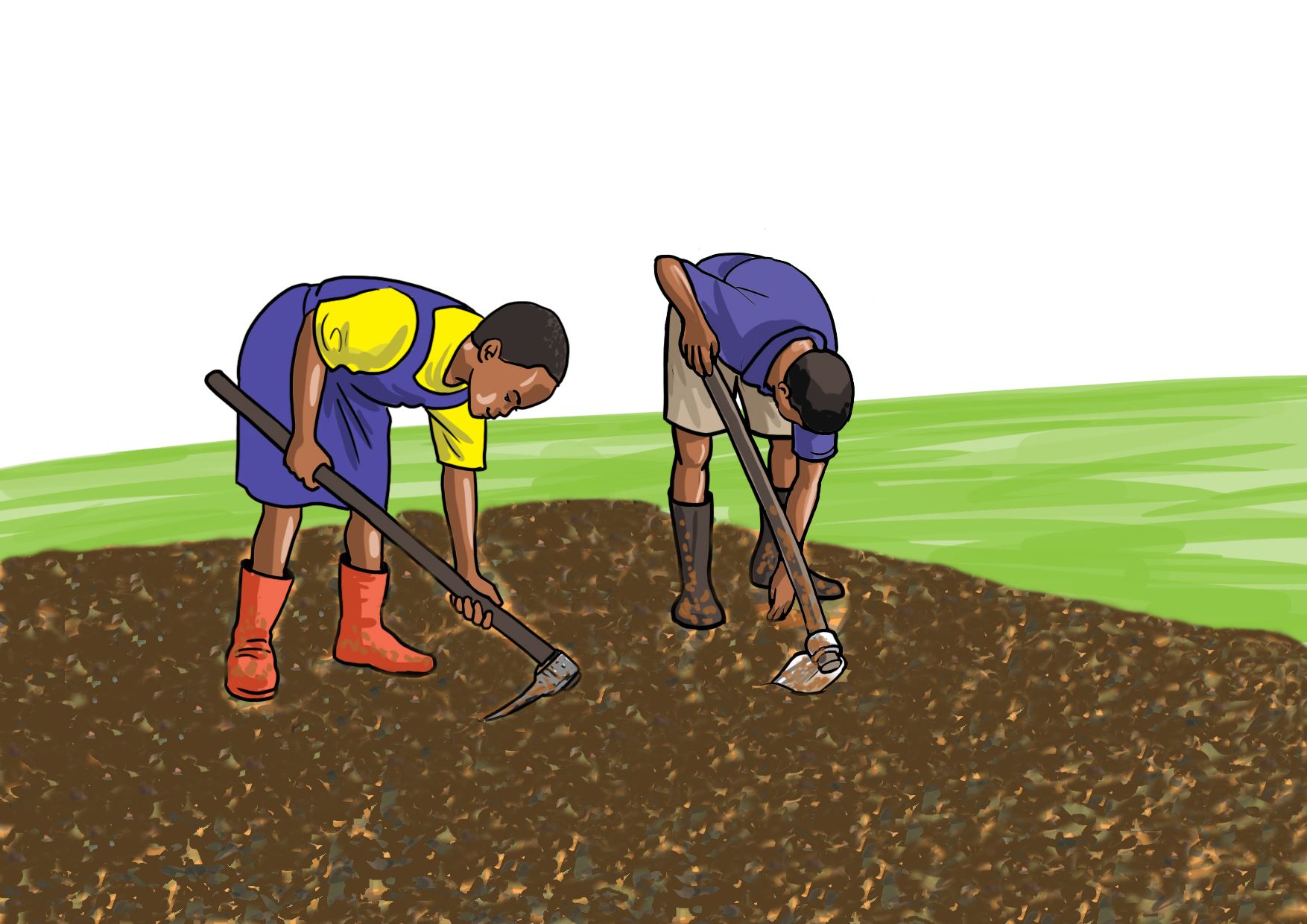
C.
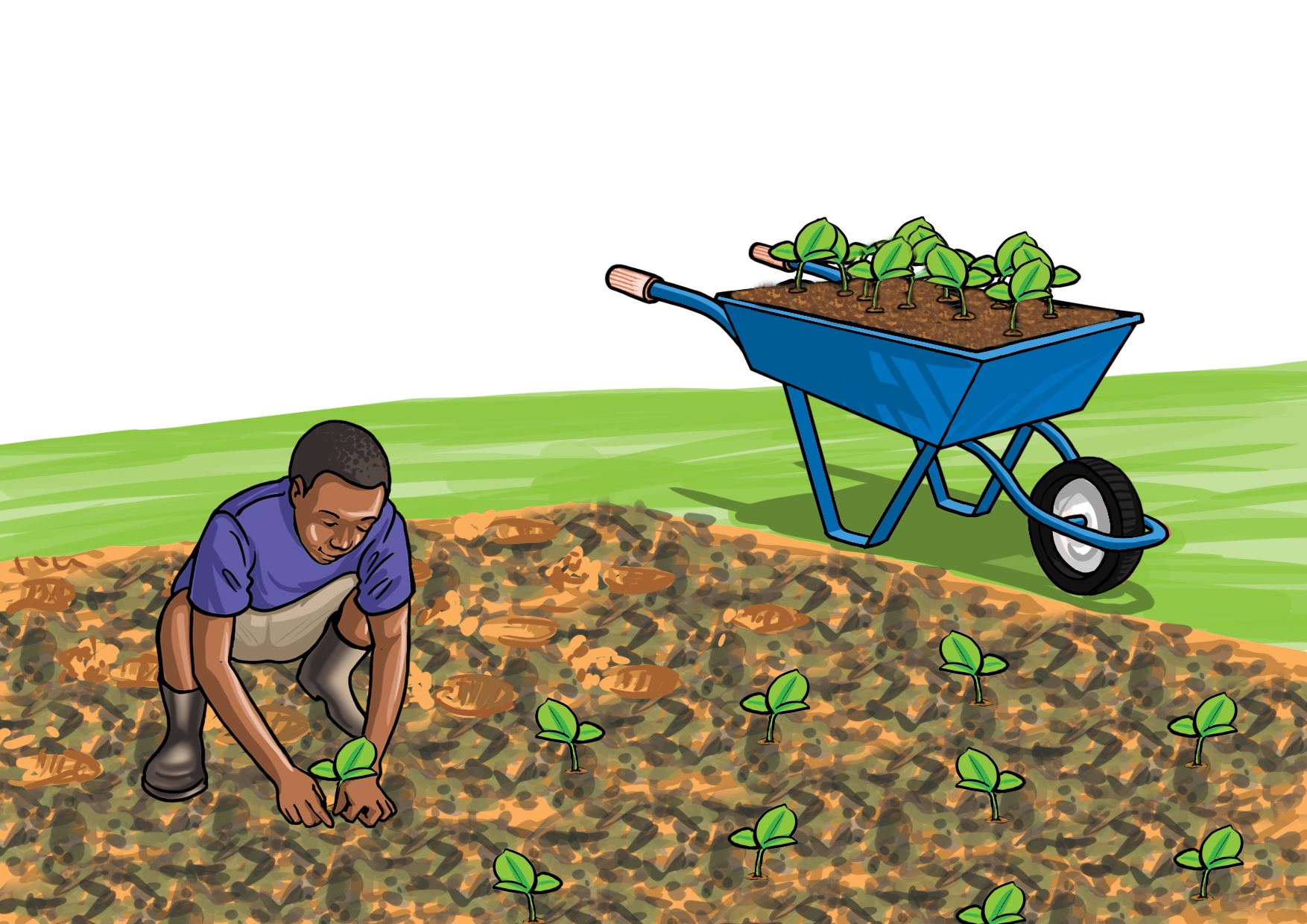
D.
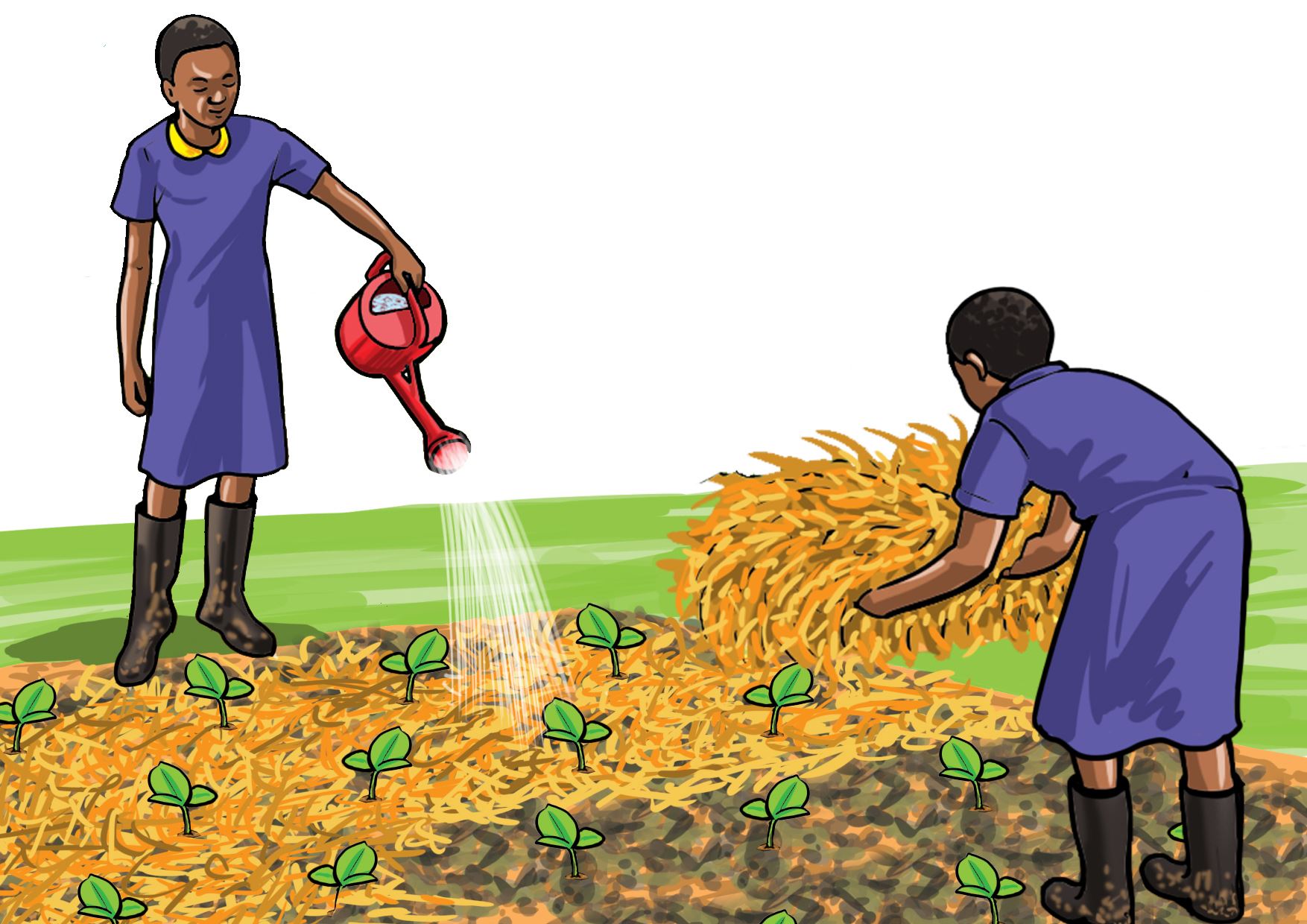
- Plant other cabbages in the school garden.
- Take the same care of cabbages in both places.
E.
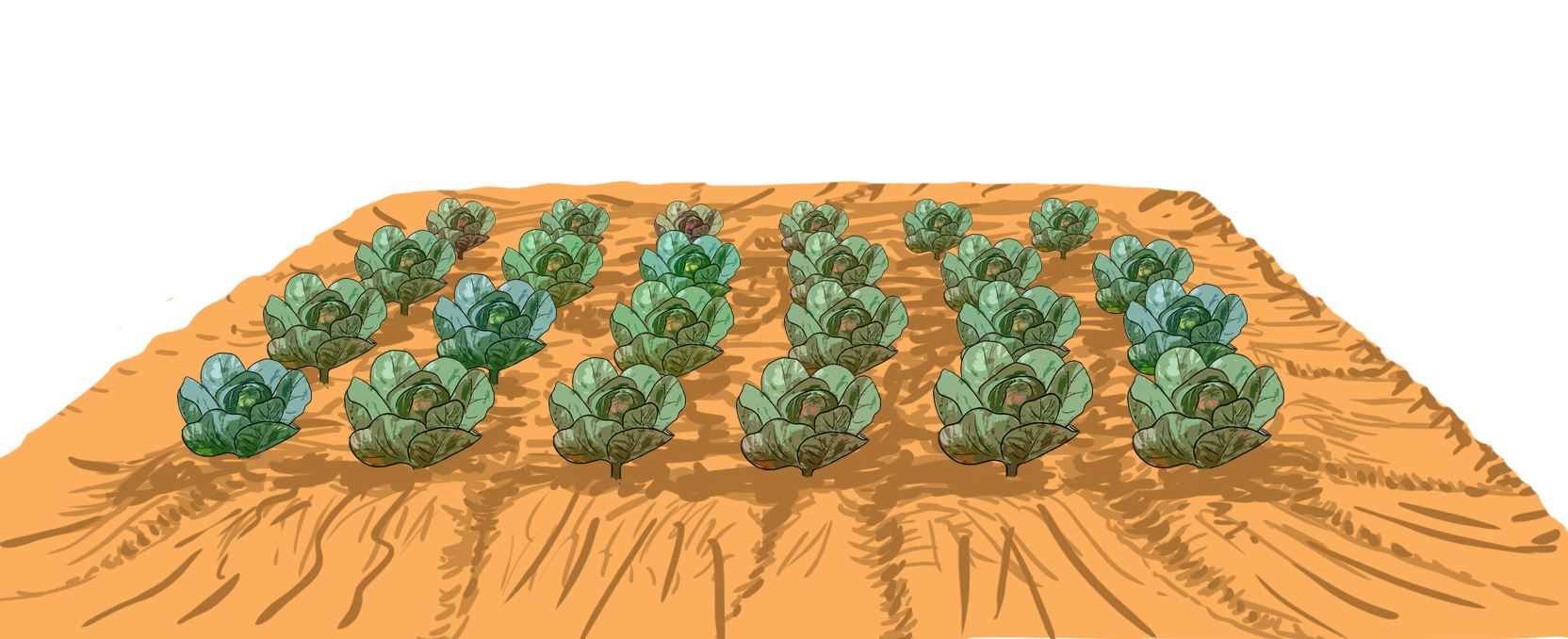
D.
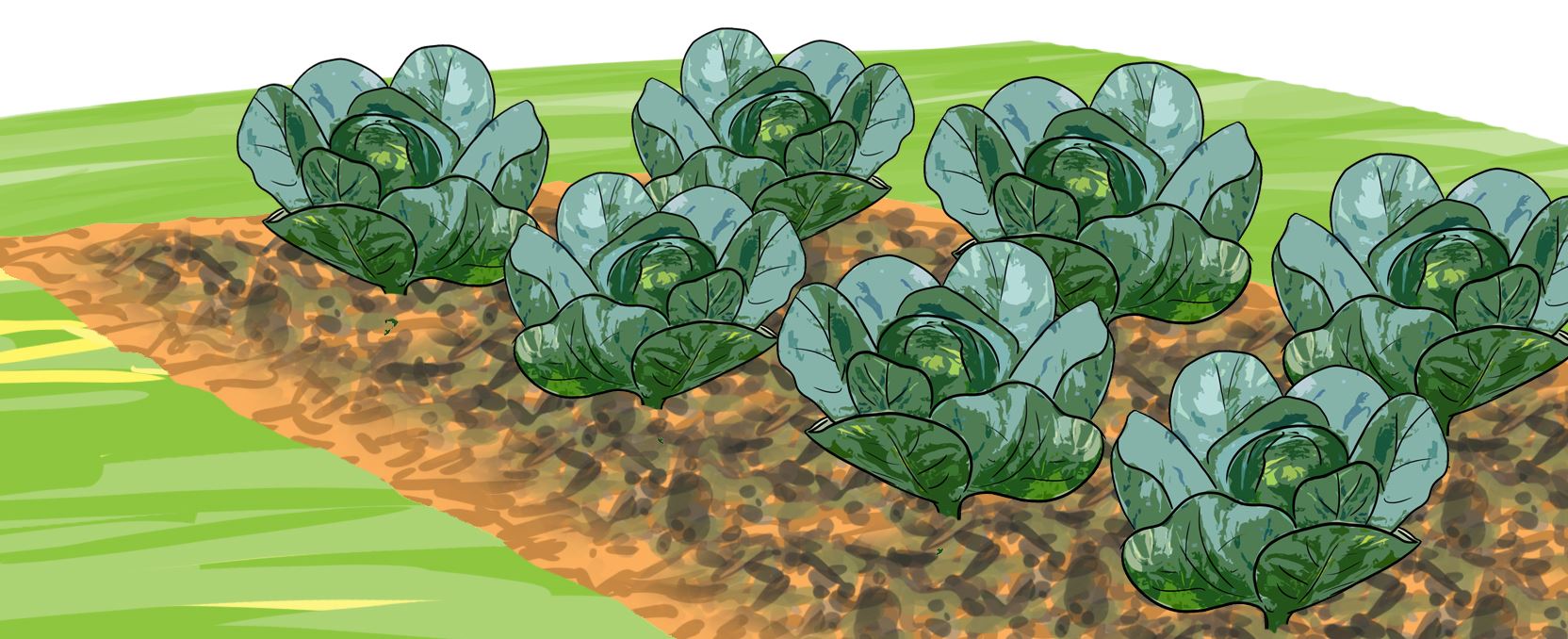
Which cabbages look healthy and strong?
Share your findings in class.
Let us understand
- Crops planted in poor eroded soil have poor growth.
- Crops planted in the organic waste pit grow healthy and strong.
- Poor soils can be improved using decomposed organic waste.
Activity 4
Home project
You can use your skills to assist your parents and guardians to construct an organic waste pit and use it for kitchen gardening.
Let us practice at home
Help your parents or guardians to carry out the following:
- Identify sites in your home for kitchen gardening.
- Identify sites where eroded soil is deposited.
- Recover the deposited soils and use it in containers to grow vegetables.
- Show your parents or guardians how to use accumulated organic waste to improve soils in the kitchen garden.
A.
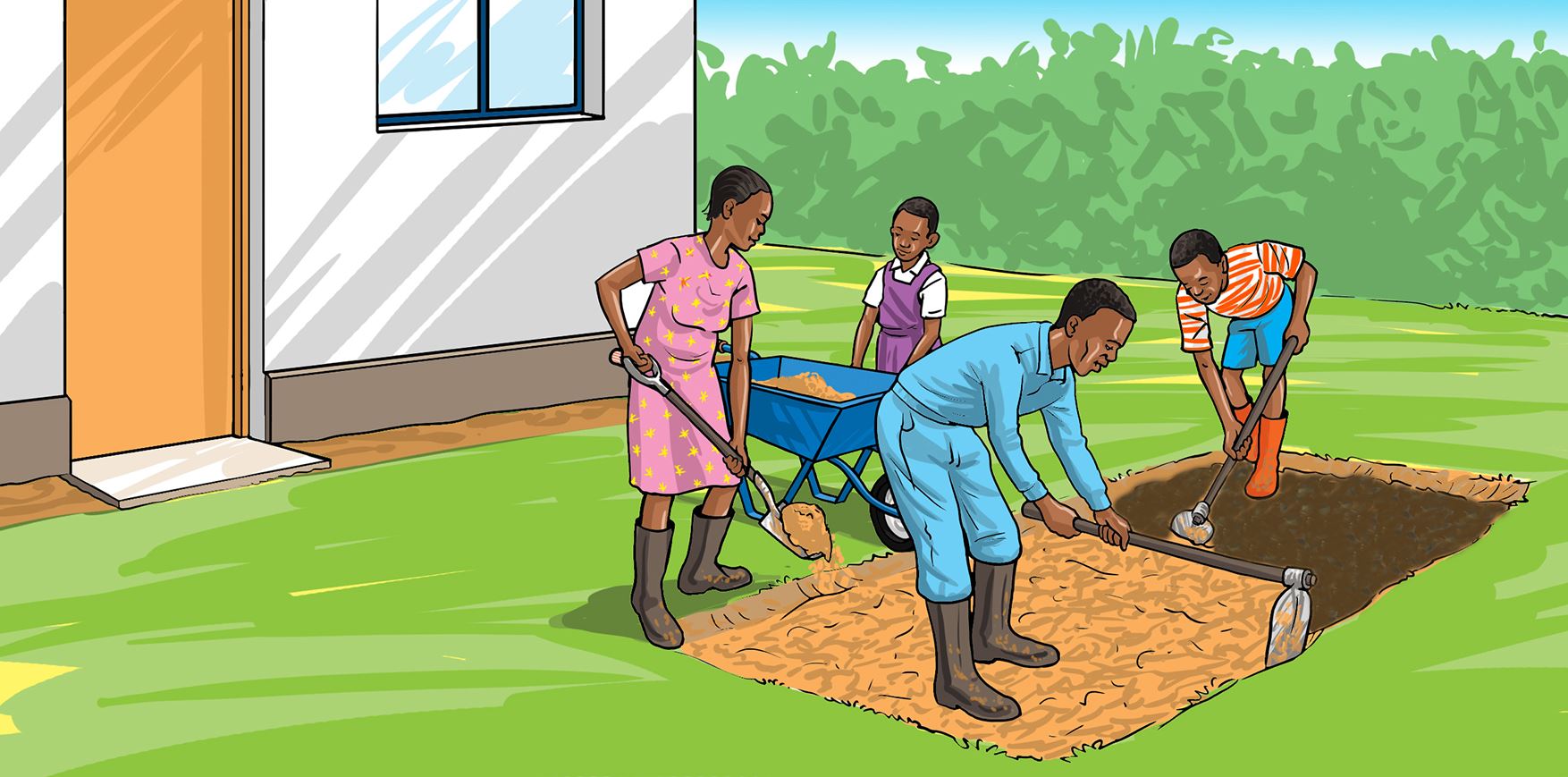
B.
